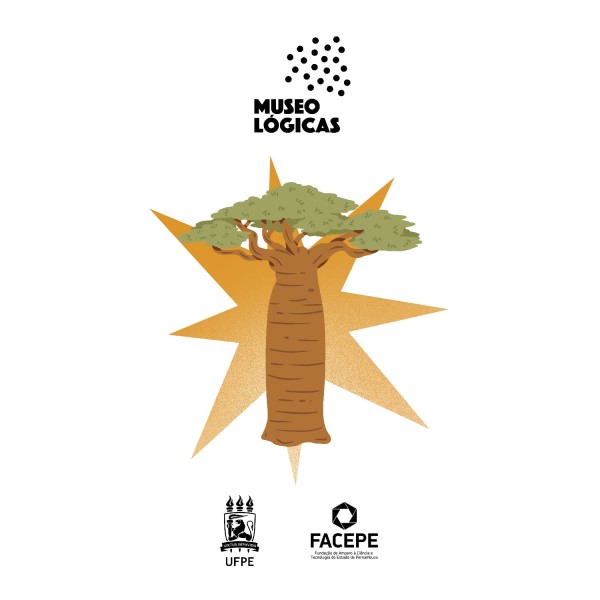Museológicas: "A decolonial ecology" with Malcom Ferdinand.
DOI:
https://doi.org/10.51359/2526-3781.2023.259130Keywords:
decolonial ecology, environmental crisis, environmentalism, anthropoceneAbstract
On March 15, 2023, Martinican researcher Malcom Ferdinand presented the general ideas of his book "Decolonial Ecology: Thinking from the Caribbean World" at a conference promoted by Oficina Francisco Brennand in partnership with the Departamento de Anthropologia e Museologia (DAM), of the Universidade Federal de Pernambuco (UFPE), with the support of the French Embassy in Brazil and Ubu Editora. The conference took place from 5 pm to 7 pm in the auditorium of the Center for Applied Social Sciences (CCSA) of the mentioned University.The author presented the main ideas of his book "A Decolonial Ecology: Thinking from the Caribbean World," published in Brazil by Editora Ubu, with a foreword by Angela Davis. In the book, Ferdinand addresses, in an intersectional manner, environmental issues from social inequalities, reflecting on the climate crisis as a legacy of colonialism. Malcom Ferdinand is an environmental engineer, holds a PhD in Political Science from the University of Paris VII, and is a researcher at the French National Center for Scientific Research. He has been researching the interaction between colonialism and environmental issues, focusing on the Caribbean situation. His work is analytically thought-provoking, denouncing the colonial fracture while pointing to epistemological solutions.
"The heavens thunder loud and clear: The World-Ship is in the midst of the modern storm. How do we face it? What route do we seek?" This is how Malcom Ferdinand immediately captures his readers through metaphorical images of storms, floods, and ships to contemplate history and environmental collapse. In a direct, incisive language, he leads us through the cruel image of Noah's Ark as a selective, exclusionary construct that abandons so many at the dock or adrift during the fatal deluge. He then highlights the image of the global catastrophe, the slave ship, which, when facing the storm, reveals the struggle within the struggle, violence, and racism. Finally, he constructs the image of the World-Ship in search of a world ecology, guiding us to navigate the Caribbean "as the sea of thought," as a valuable perspective for the critical reflection of the colonial experience that devastates life on the planet.
The central argument of the book is the fracture that separates colonial history from environmental history. The work unfolds with the powerful impulse to make us reflect on the trap of coloniality, which, by separating the inseparable, weakens the political mobilization of the enslaved, subaltern, violated, and oppressed. It is on this journey through the sea of Caribbean thought that the connection between environmental movements and anti-racist movements emerges as the only way to overcome the absence of Black or racialized people in the arenas of environmental discourse production. It also serves as an operation to dismantle "white environmentalism" - one of an apolitical genealogy that does not question social injustices, gender discriminations, racism, and the "animal cause." For Malcom, white environmentalism "hides the durability of psychic, sociopolitical, and ecosystemic toxicities and violence" of the colonial enterprise, preventing us from seeing the strength and acuity of the storm we are facing. Malcom asserts: "Historical colonizations, as well as structural racism, are at the center of the destructive ways of inhabiting the Earth."
According to Malcom, the Western imaginary of the ecological crisis erases the colonial fact. After reading his work, it is no longer possible to understand the Anthropocene without redefining it through anti-racism, anti-colonialism, and anti-slavery. Starting from the premise that "environmental destruction does not affect everyone in the same way," the book focuses on the ecological-political struggle in which debates about the environment and life on Earth must be inscribed amid the modern storm. For him, this discussion is, above all, a matter of meaning: "In the middle of the cyclone, if we pay attention, we can hear the cries of those left behind in the catastrophe."
The Museológicas Podcast team recorded the entire lecture, edited it, and transformed it into a podcast. During his speech of just over an hour, Malcom alternated between Portuguese and French. Therefore, we provided translations for the French segments and included them in the recording, much like simultaneous translation. We invite the readers of Anthropológicas Visual to listen to the program and embark on a journey through the seas of Caribbean social thought.

Published
2023-07-28
Issue
Section
Podcast
License
Copyright (c) 2023 AntHropológicas Visual

This work is licensed under a Creative Commons Attribution-NonCommercial 4.0 International License.
Direitos Autorais para trabalhos audiovisuais publicados na AntHropológicas Visual sã licenciados para uma licenca Creative Commons 4.0 BY-NC.
